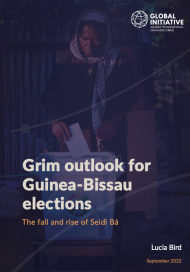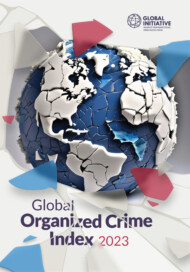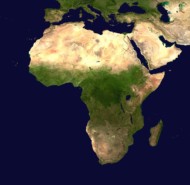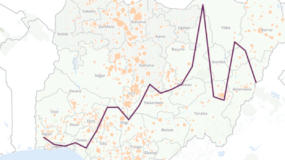Posted on 13 Sep 2022
The surprise conviction in 2020 of businessman Braima Seidi Bá, arguably Guinea-Bissau’s most prominent cocaine trafficking kingpin according to law enforcement investigations, was heralded by the international community as a turning point in the West African state’s response to the cocaine economy, which had become in some respects all too synonymous with the country for several years.
Bá was found guilty of coordinating the import of 1 800 kilograms of cocaine in September 2020, resulting in the biggest seizure on record in Guinea-Bissau. The country operates as an important transit point on international cocaine trafficking routes that connect Latin American supply countries with European consumer markets.
Bá’s conviction received much international coverage, and was identified by a number of international players as a volte-face in the country’s criminal justice response to cocaine trafficking. Such hopes have subsequently proved misplaced.
The equally surprising acquittal of Bá by Guinea-Bissau’s Supreme Court in June 2022 has thus far been met by deafening silence among the international community, and national officials. Elements of Bissau-Guinean judiciary and civil society, however, have expressed great disappointment and frustration at the acquittal, which is perceived by many to be emblematic of the finishing touches to the process of political ‘capture’ of the judiciary – a trend highlighted by civil society to have accelerated since early 2020.
The acquittal comes amid significant political instability in Bissau, little more than a month after President Embaló dissolved the National Assembly, the country’s legislative branch. The timing of the acquittal is key to understanding the drivers behind it: the judgment was handed down mere months ahead of legislative elections, called as soon as the National Assembly was dissolved, and currently scheduled for December 2022.
Guinea-Bissau’s lucrative illicit economies – most prominently illicit logging and the cocaine trade – have for a long time financed the hefty costs of political elections. From the timing of Bá’s acquittal, it could be inferred that this precedent looks unlikely to be broken in the run-up to the 2022 elections.




